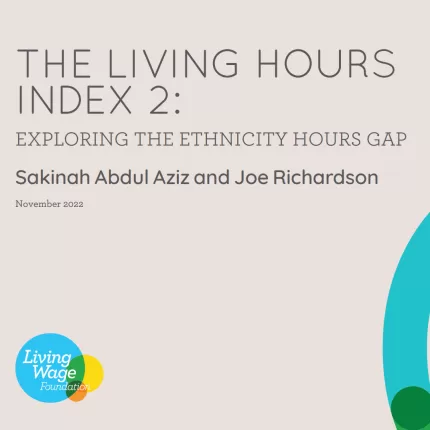THE LIVING HOURS INDEX 2: EXPLORING THE ETHNICITY HOURS GAP
The UK is facing the worst cost-of-living-crisis in almost half a century, and no one is feeling the squeeze more than the nation’s 4.8m workers paid less than the real Living Wage. Earning a wage which meets rising living costs has never been more important. However, the other side of the coin is having stable, reliable hours.
As the last ‘Living Hours Index’ showed, a third (32 per cent) of the UK workforce get less than a week’s notice for shifts, working hours, or work schedules, while 8 per cent get less than 24 hours’ notice. This new research shows that, like wages, work insecurity also has a racialised dynamic. This study highlights that workers from minority ethnic backgrounds are more exposed to unstable working patterns because a large majority (71 per cent) are employed in shift work compared to just over half (53 per cent) of white workers. But even amongst shift workers, those from minority ethnic backgrounds are more likely to face forms of insecurity such as short notice periods and cancelled shifts – highlighting a clear ethnicity hours gap.

